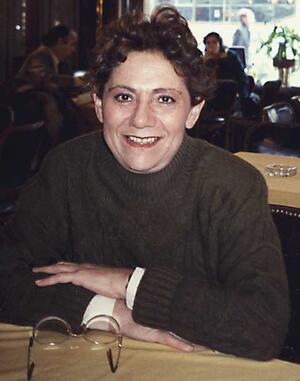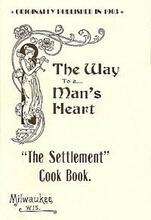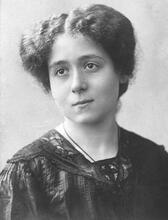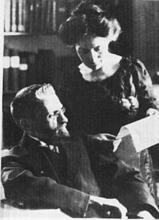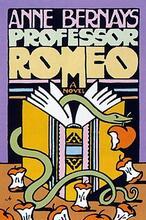Alicia Steimberg
Alicia Steimberg’s novels and short stories, often thinly veiled autobiography, were full of sardonic humor. Although Steimberg won prestigious prizes, she always supplemented her work as a writer with translation and literary workshops. Two of her best-known novels, Musicians and Watchmakers and When I Say Magdalena, are available in English translation.
Family & Education
Alicia Steimberg was born on July 18, 1933, in Buenos Aires (the city that provides the backdrop to most of her fiction) to parents who had advanced beyond the tenement life and agricultural work of their immigrant forebears. Her paternal great-grandfather, Zalmen Steinberg, emigrated from Russia, arriving in Argentina in 1890 and settling in the Jewish colonies in the province of Entre Rios. Zalmen farmed and helped build the homes of Jewish agricultural colonists on the Argentine plains. Her maternal grandmother, Carlota Jurafsky, emigrated from the Ukraine, arriving in Argentina in 1890 and settling in Buenos Aires. In the novel Músicos y relojeros (Musicians and Watchmakers, 1971), a character based on her maternal grandmother boasts that all their Romanian and Ukrainian ancestors “were very illustrious” and had been either musicians or watchmakers all the way back to King David himself. Steimberg’s father, Gregorio (1900–1941), born in Argentina, was a teacher, and her mother, Luisa (née Imas, 1907–1979), was a dentist.
The death of Alicia’s father when she was eight years old threatened the family’s economic stability. Her mother lost her job immediately after criticizing Perón during a telephone conversation. Despite their penurious situation, both Steimberg and her younger brother Oscar (b. 1936), a well-known semiologist, studied at university. Steimberg graduated from the prestigious Instituto Nacional del Profesorado with a degree in Modern Languages and a major in teaching English, a vocation she followed at the secondary and university levels and as a private tutor.
Literary Works
Alicia Steimberg’s life formed the framework and informed the themes of her satirical and irreverent novels and short stories. She often gave her protagonists Alicia or similar names, such as Cecilia. The loss of her father when she was young and a tempestuous relationship with her mother are recurring themes in her fiction. Her first novel, Músicos y relojeros, deals with her youth and adolescence as well as with the tumultuous and amusing activities of her immigrant relatives: courtship rituals, tacky weddings, and family feuds. La loca 101 (Madwoman 101, 1973) relates the tribulations of the aspiring writer whose drive to write and social and familial responsibilities threaten her mental stability. In Su espíritu inocente (Her Innocent Spirit, 1981) she portrayed her years in high school and college as well as her first marriage, to Abraham Sokoloiwcz (1957–1966). Her second husband, Abraham Svidler (1928–1990), whom she married in 1968 and with whom she had a son Martín (b. 1973), encouraged her to publish work she had been writing since she was an adolescent. El árbol del placer (The Tree of Pleasure, 1986) satirizes the myriad of psychoanalytic and self-help therapies current in Buenos Aires in the sixties and seventies. The death of her second husband from cancer is the subject of her novel La selva (The Jungle, 2000), a painful work that recounts the physical abuse she suffered from her son Martín after the death of his father. The novel contrasts the narrator’s painful memories with the sensual pleasures of a love affair at a spa somewhere in Brazil. One hopes that her last novel, La música de Julia (2008) was autobiographical, because it relates how Julia and an old friend Eduardo rekindle their relationship in their seventies. As usual, bits and pieces of their life stories form the plot: stories that relate their failing bodies and mental acuity.
Most of Steimberg’s novels deal humorously with difficult personal topics and the social and economic chaos in her country. As Saul Sosnowski points out, she skillfully wove together pieces of stories in ways that challenge the reader. Her playful use of language and popular themes taken from comic strips or tangos attenuates the underlying current of terror. Yet nowhere in her fiction did she describe a family crisis that occurred during the military dictatorship called the Proceso (Process of National Reorganization) 1976-1983, because there was nothing funny she could say about that time. Steimberg and Svidler sent her teenaged children by her first marriage, Estela (b. 1957) and Víctor (b. 1958), to Italy to save them from being arrested and “disappeared.” While many of her fellow writers emigrated during the Proceso, Alicia remained in Argentina.
Jewish Identity & Reception
Like her parents and grandparents, Steimberg knew little about formal Judaism. In her fiction, Catholicism has an aesthetic allure that beguiles the young Alicia, while Jewish ritual and edifices seem shabby and dull in comparison. Steimberg loved Yiddish music and certain foods, but her cookbook for children, El mundo no es de polenta (The World Is Not Made of Polenta, 1991), focuses on Italian and Spanish specialties. In an interview with Susana Conde, she declared: “I was never a member of the Jewish community and I never went to the Jewish cultural and social centers; moreover, I had a nucleus of people from that community against me when I published Musicians and Watchmakers because they felt it was derogatory” (Conde, 47). However, from the time that her work received critical acclaim, she was accepted by the Jewish community and invited to participate in conferences of Jewish writers in Brazil, Argentina and the United States.
Honors
Literary contests and prizes stimulated Steimberg’s late-budding career. Músicos y relojeros and La loca 101, as well as her book of short stories Como todas las mañanas (Just Like Every Morning, 1983) and Amatista (Amethyst, 1989), an irreverent take on erotic fiction, won the Satiricón de Oro prize. Cuando digo Magdalena (Call Me Magdalena, 1992) won one of Latin America’s biggest cash prizes, the Premio Planeta Biblioteca del Sur.
Despite critical acclaim, writing never afforded her economic stability, so Steimberg always supplemented her income by other activities: translation, literary workshops, English classes, and journalistic essays. A Fulbright fellowship funded her attendance at the Iowa International Writers’ Conference in 1983. From 1995 to 1997 she served as Director of Books for the Argentine Secretariate of Culture. In 2004 she published a craft book, Aprender a escribir. She won the prestigious Konex Foundation award for translation in 2004.
Alicia Steimberg died in Buenos Aires on June 16, 2012.
Selected Works
Músicos y relojeros. Buenos Aires: Centro Editor de América Latina, 1971.
La Loca 101. Buenos Aires: Ediciones de la Flor, 1973.
Su espíritu inocente. Barcelona: Pomaire, 1981.
Como todas las mañanas. Celtia, 1983.
El árbol del placer Buenos Aires: Emecé, 1986.
Amatista. Barcelona: Tusquets Editores, 1989.
El mundo no es de polenta. Buenos Aires: Conquena, 1991.
Cuando digo Magdalena. Buenos Aires: Editorial Planeta, 1992).
Vidas y vueltas. Buenos Aires: Adriana Hidalgo Editora, 1999.
La selva. Madrid: Alfaguara, 2000.
Aprender a escribir. Aguilar, 2004.
La música de Julia. Madrid: Alfaguara, 2008.
English translations by Andrea Labinger
Musicians and Watchmakers.. Ithaca, NY: Latin American Literary Review Press, 1998.
Call Me Magdalena. Lincoln, NE: University of Nebraska Press, 2001.
Agosin, Marjorie. “Alicia Steimberg y Elvira Orphee.” In Literatura fantástica del Cono Sur: las mujeres. San Jose: Colección Signo 1992.
Barr, Lois Baer. Isaac Unbound: Patriarchal Traditions in the Latin American Jewish Novel. Mesa, Arizona: Arizona State University Center for Latin American Studies 1995.
Barr, Lois Baer. “Alicia Steimberg. ” In Jewish Writers of Latin America: A Dictionary, edited by Darrell Lockhart. New York: Routledge 1997.
Calabrese, Elisa T. “Mujeres, memoria e identidad en Cuando digo Magdalena de Alicia Steimberg.” Confluencia-Revista Hispanica de Cultura y Literatura. 11 (2) (Spring 1996): 58–65.
Conde, Susana. “Alicia Steimberg.” Hispamérica. 23 (67) (1994): 43–53.
Flori, Monica. “Conversación con Alicia Steimberg sobre Amatista, su novela erotica.” Alba de América: Revista Literaria. 11 (20–21) (July 1993): 433–436.
Flori, Monica. “Alicia Steimberg y Cecilia Absatz: Dos narradoras argentinas.” Chasqui. 17 (2) (November 1988): 83–92. 1988.
Flori, Monica. Streams of Silver: Six Contemporary Women Writers from Argentina Lewisburg and London: Bucknell University Press, 1995.
Foster, David William. “Recent Argentine Women Writers of Jewish Descent.” In Passion, Memory and Identity, edited by Marjorie Agosín, 35–57. Albuquerque, New Mexico: University of New Mexico Press, 1999.
Gimbernat González, Ester: El árbol del placer: retóricas de enfermedad.” In Aventuras del desacuerdo: novelistas argentinas de los ’80. Buenos Aires: Danilo Albero Vergara, 1992.
Heinrich, Maria E. “El arbol del placer de Alicia Steimberg.” Hispamérica 16 (48) (1987): 155–157.
Moret, Zulema. “Cuando digo Magdalena, ¿a quién nombro?” Alba de América: Revista Literaria 15 (28–29) (July 1997): 227–235.
Schneider, Judith Morganroth. “Alicia Steimberg: Inscriptions of a Jewish, Female Identity.” Yiddish 9 (1) JMS Annual VIII/2: (1993) 92–104.
Senkman, Leonardo. La identidad judía en la literatura argentina. Buenos Aires: Pardés, 1983.
Sosnowski, Saul. “Alicia Steimberg: Enhebrando pequeñas historias.” Folio: Essays on Foreign Languages and Literatures. 17 (1987): 104–110.
Tompkins, Cynthia. “Intertextualidad en Amatista y Cuando digo Magdalena de Alicia Steimberg.” Hispamérica 26 (76-77) (1997): 197–201.
Weinstein, Ana E., and Miryam E. Gover de Nasatsky, eds. Escritores judeo-argentinos: bibliografía 1900–1987. Vol. II, 232–234. Buenos Aires: 1994.

